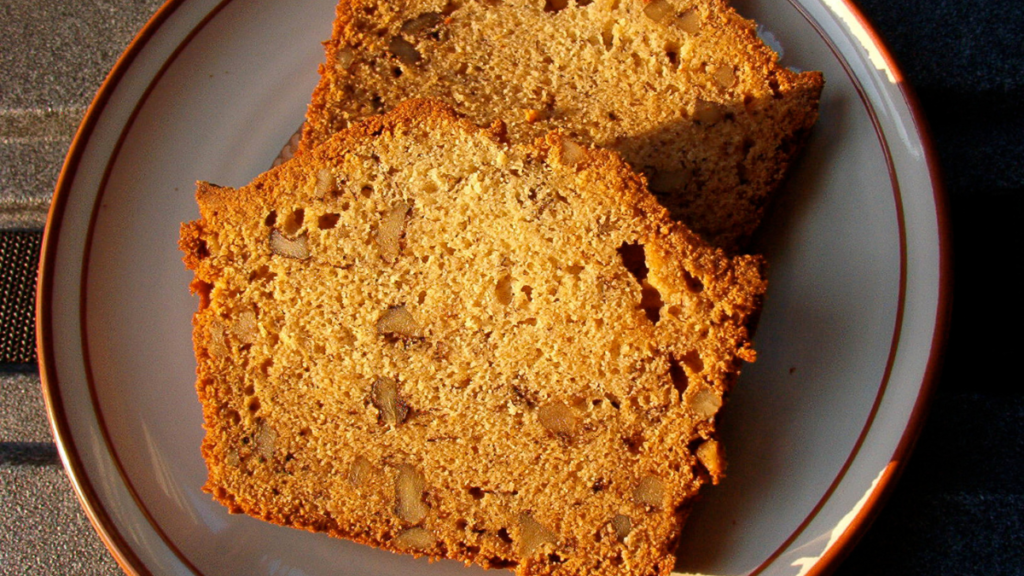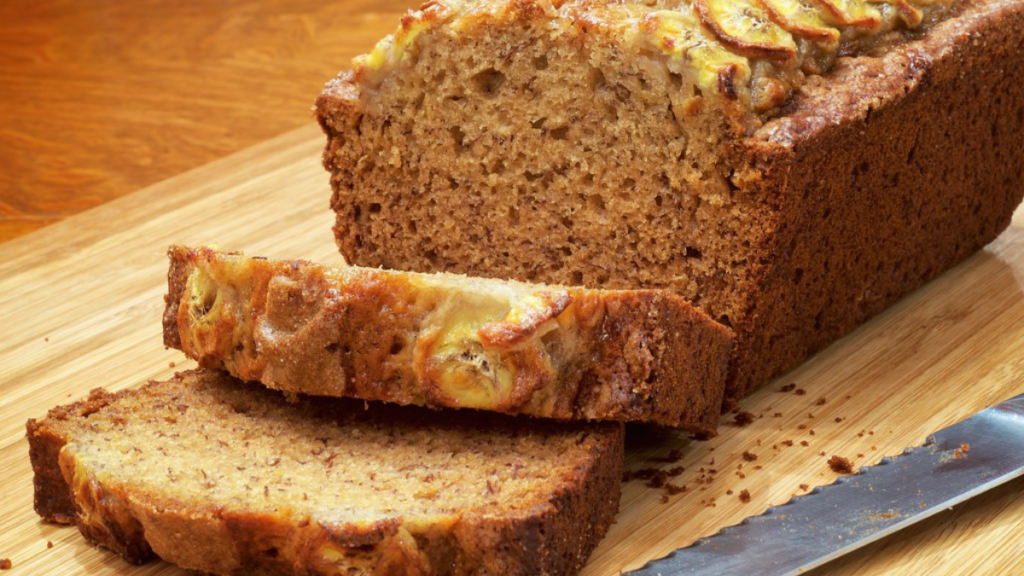Baking banana bread is a delightful pastime, but the question remains: can your four-legged companion indulge in this treat, too? This comprehensive guide will provide you with all the essential information you need before deciding whether to offer your canine friend a taste of banana bread.
The challenge in addressing this question lies in the sheer variety of banana bread recipes available. Each recipe can differ significantly, making it a puzzle to decipher whether it suits your adult dogs. This guide will help you navigate the delicious dilemma and explore the safety and feasibility of giving your pets a small portion of this delectable treat as an occasional indulgence. So, let’s delve into the canine nutrition and treat-sharing world to ensure your furry friend’s health and happiness.
Can Dogs Have Banana Bread
Feeding banana bread to your canine companion is generally discouraged. Although most banana bread recipes do not contain inherently toxic ingredients for dogs, they typically have significant amounts of sugar. This elevated sugar content can lead to undesirable weight gain and potentially cause health issues for your pet.
Related: Can Dogs Eat Sourdough Bread?
However, some dog owners may occasionally offer their pets small servings of banana bread as an infrequent indulgence. If you choose to do so, it’s essential to exercise caution and ensure that the banana bread is free from potentially harmful components, such as chocolate chips, macadamia nuts, or xylitol. These ingredients are known to be hazardous for dogs and should be strictly avoided. In such cases, moderation and careful ingredient scrutiny become paramount to ensure your dog’s safety and well-being while savoring the occasional taste of this human treat.
Is Banana Bread Good for Dogs
Bananas make an exceptionally healthy treat for your dog and are considered one of the finest fruit options. Don’t hesitate to occasionally offer your furry friend a banana, even without the bread. The reason is simple: Banana bread typically contains wheat flour, which may not suit all dogs due to grain allergies or sensitivities. For dogs without such issues, enjoying a banana alone provides them with essential nutritional advantages.
Dietary elements in banana bread can benefit your dog in several ways:
- Fiber: Essential for maintaining a healthy digestive system, fiber aids in regular bowel movements and prevents constipation.
- Protein: While the protein in banana bread is plant-based, it still contributes to muscle health, supporting your dog’s overall strength.
- Manganese: This nutrient has anti-inflammatory properties and plays a crucial role in enhancing bone health, which is vital for your dog’s mobility and agility.
- Phosphorus: As the catchy jingle goes, “Life without phosphorus is preposterous.” Phosphorus is fundamental for forming and maintaining strong bones and teeth in your furry friend.
- Niacin: Niacin, a B vitamin, can enhance brain function and cognitive abilities and also improve the health and condition of your dog’s skin, ensuring a shiny and lustrous coat.
- Potassium: Vital for regulating water balance, muscle contractions, and maintaining a balanced nervous system, ensuring your dog’s body functions optimally.
- Magnesium: Facilitates muscle and nerve function, supporting overall mobility and coordination in your pet.
- Vitamin B6: Benefits the central nervous system, promoting smooth communication between nerve cells and enhancing overall neural function.
- Vitamin C: Although dogs produce vitamin C naturally, an extra dose can bolster their immunity, helping protect them from various health challenges.
While these nutrients can be found in banana bread, it’s important to remember that this human treat should be offered in moderation, and any additions to your dog’s diet should be discussed with a veterinarian to ensure their overall well-being.
Is Banana Bread Bad for Dogs
While banana bread isn’t specifically designed for dogs or even the healthiest human snack, it has drawbacks. It’s not the ideal choice for humans to consume regularly, either. Occasional indulgence is generally harmless, but moderation is key, as excessive consumption can be detrimental.
Banana bread, like many human treats, often contains added sugar and calories that can contribute to weight gain in dogs and their human companions. Recognizing that what’s considered a “good thing” can become problematic when overindulged is essential. So, for dogs or humans, striking a balance in treating oneself to such delights is crucial to maintaining a healthy and well-rounded diet.
Banana bread poses several concerns due to its composition:
- Elevated Sugar Levels: Banana bread is notorious for its high sugar content. Excessive sugar intake, whether in dogs or humans, can lead to unwanted weight gain and increase the risk of diabetes.
- Abundance of Carbs: Most banana bread recipes are laden with carbohydrates. Carbs can contribute to weight gain when consumed in excess, making it an undesirable dietary component for both canines and humans.
- Artificial Additives: Artificial flavors and preservatives in some banana bread recipes are another issue. Prolonged consumption of such additives isn’t conducive to long-term health, potentially leading to various health concerns.
These factors underline the importance of moderation and being mindful of the ingredients in banana bread when considering it as an occasional treat for dogs or humans.
Watch for Dangerous Ingredients

Banana bread can vary significantly depending on its source, and some versions may contain ingredients that are not only harmful but potentially life-threatening. Being aware of these risks is crucial to ensure your beloved dog doesn’t end up requiring urgent veterinary care.
Beware of these hazardous ingredients that may be found in banana bread:
- Raisins: These seemingly harmless dried fruits are poisonous to dogs and can lead to kidney failure, making them a strict no-no.
- Chocolate: Regardless of its form, chocolate contains caffeine and theobromine, both toxic to dogs. While it may not be instantly deadly, it can cause severe illness in your furry friend.
- Xylitol: An artificial sweetener, xylitol is highly toxic to dogs. Even small amounts can trigger hypoglycemia, and in larger quantities, it can lead to liver failure, potentially proving fatal.
- Macadamia Nuts: These nuts can wreak havoc on your dog’s health, causing distressing symptoms like vomiting and diarrhea. It’s crucial to ensure that banana bread or any other food with macadamia nuts is kept well out of your dog’s reach to prevent potential harm.
In the event that you have reason to believe your dog has consumed banana bread containing any of these harmful components, immediate action is crucial. Waste no time and promptly seek veterinary assistance to ensure your dog receives the necessary and timely treatment.
Wheat Allergies and Grain Sensitivities
For dogs with wheat allergies or gluten sensitivities, avoiding banana bread, even in small amounts, is advisable. While you might already be aware of such conditions, some pet owners may need to recognize them. The good news is that there are telltale signs to watch for.
If you’re uncertain, keep an eye out for visual indications:
- Excessive itching
- Hair loss
- Yeasty skin
- Ear infections
- Diarrhea
- Gastrointestinal problems
- Poor coat quality
- Dry nose
If you suspect your dog may have issues with grains or gluten, it’s best to consult your veterinarian before making any significant dietary alterations. Their expertise can help ensure your dog’s nutritional needs are met while accommodating any sensitivities or allergies.
Final Thoughts
Indulging your dog in banana bread is a delightful idea, but it comes with considerations. Banana bread often contains significant sugar, which, when consumed excessively, can lead to weight gain. Furthermore, it may contain risky ingredients like raisins, chocolate, xylitol, or macadamia nuts, which can be life-threatening for dogs. If your dog accidentally ingests such elements, seek immediate veterinary care.
While banana bread provides some nutrients, it’s not a primary dietary source for dogs. Bananas themselves offer numerous health benefits, being a rich source of potassium, vitamins, and fiber. However, wheat flour in banana bread may not suit dogs with grain sensitivities or allergies, showing signs such as itching, diarrhea, or skin issues.
Balancing your dog’s diet with guidance from a veterinarian is essential. Occasional indulgence is permissible, but moderation and vigilance over ingredients are critical for both your dog’s safety and well-being.


Pingback: Can Dogs Eat Squash? Everything You Need to Know About - Dogy Wogy